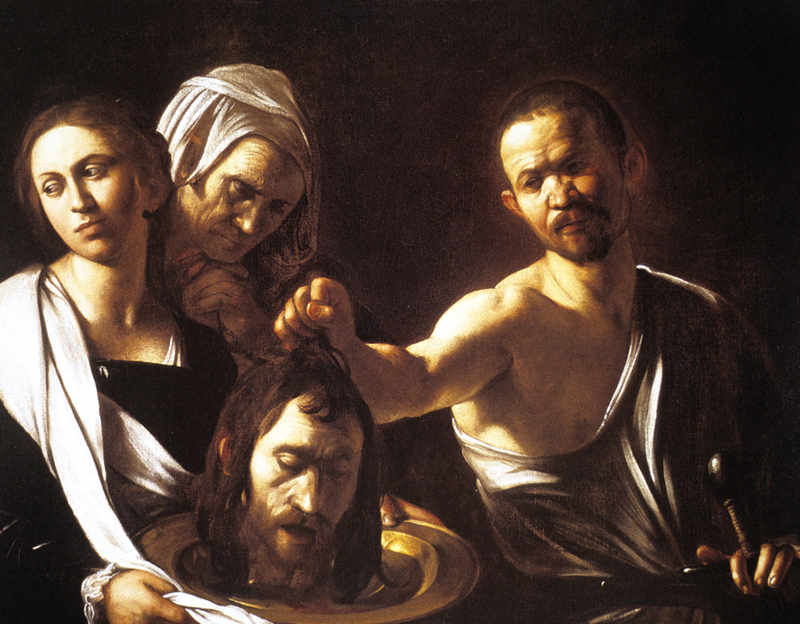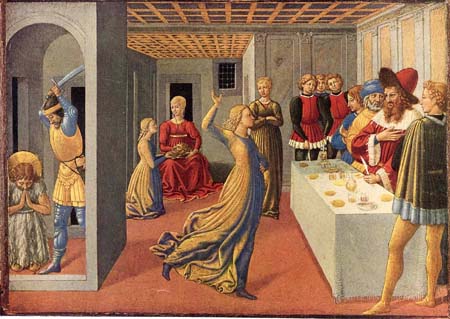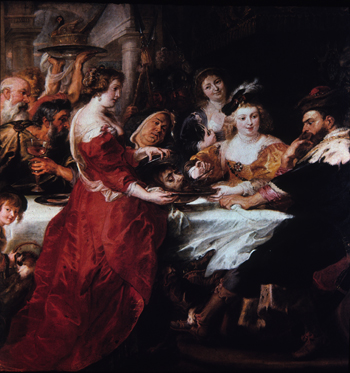Pentecost 9B, July 26, 2015
John
6:15-21
 15When Jesus realized that they were about to come and take
him by force to make him king, he withdrew again to the mountain by himself.16When
evening came, his disciples went down to the sea, 17got into a
boat, and started across the sea to Capernaum. It was now dark, and Jesus had
not yet come to them. 18The sea became rough because a strong
wind was blowing. 19When they had rowed about three or four
miles, they saw Jesus walking on the sea and coming near the boat, and they
were terrified. 20But he said to them, “It is I; do not be afraid.”21Then
they wanted to take him into the boat, and immediately the boat reached the
land toward which they were going.
15When Jesus realized that they were about to come and take
him by force to make him king, he withdrew again to the mountain by himself.16When
evening came, his disciples went down to the sea, 17got into a
boat, and started across the sea to Capernaum. It was now dark, and Jesus had
not yet come to them. 18The sea became rough because a strong
wind was blowing. 19When they had rowed about three or four
miles, they saw Jesus walking on the sea and coming near the boat, and they
were terrified. 20But he said to them, “It is I; do not be afraid.”21Then
they wanted to take him into the boat, and immediately the boat reached the
land toward which they were going.
Abby: Last week, John and I were blessed to
travel with 4 of our youth to Detroit, Michigan and Toledo, Ohio, were we served
with 30,000 other Lutherans at the ELCA’s National Youth Gathering. Our time
together opened our eyes to how God is present in our darkest and most
difficult times and how God brings hope.
 |
| This is probably about 20,000 Lutherans in Ford Field. It was hard to get us all in the picture. |
Together with 2 youth and the pastor of the Lutheran
Church of the San Juans, we served, learned, played, and grew in faith. On our
way home, we reflected on the gospel for today in light of our experiences.
John: v. 17: “It was now dark, and Jesus had not yet
come to them.” Question 1: Where did you see dark places in Detroit or Toledo
that seemed to be God-forsaken?
 |
| The local Toledo paper, THE BLADE, published this photo by AMY E. VOIGT about the problem of urban blight. |
Madison: In the boarded up houses and buildings,
also in the eyes of the people in Toledo.
 |
| The Summit Diner in Toledo, on the banks of the Maumee River, just 2 blocks from the church. . |
Elly: When we talked with people in
Toledo to ask where we could go for lunch, they warned us not to walk to the
restaurant a couple blocks away, even though it was broad daylight. The
neighborhood had changed for the worse, adding violence to the challenge of
poverty.
Dawson: In the boarded up houses and buildings,
empty areas, empty streets, and sometimes even in the eyes of some of the
homeless people.
Madison: In the kids who lived on blocks where they
didn’t know if they could get home safe at night.
Abby: As we drove through Detroit,
we saw building after building that was empty. Sometimes, there was only one
occupied house on the block in a sea of boarded up buildings. Or sometimes
there was only one house left on a block, the rest having been torn down. What
must it be like to lose your neighbors, your job, your church, your community?
 |
| "Urban prairie Detroit 1" by Jtmichcock at English Wikipedia - Transferred from en.wikipedia to Commons by MuZemike.. Licensed under CC BY-SA 3.0 via Wikimedia Commons - https://commons.wikimedia.org/wiki/File:Urban_prairie_Detroit_1.jpg#/media/File:Urban_prairie_Detroit_1.jpg |
Elly: Verse 18: “The sea became rough.” Question2:
What “rough waters” do the people of Detroit or Toledo face? What rough waters
did you face this week?
Dawson: In the people’s sense of
abandonment, especially that areas outside of downtown are on their own.
Madison: In Detroit and Toledo, people face poverty,
lack of food, and a bad economy. I faced simple challenges such as homesickness
and the heat because it is so much hotter in Detroit and Toledo.
John: Economic times are rough but seem to be
getting better. Slowly, neighborhoods are rebounding. My rough waters were getting enough sleep and
having patience.
Elly: They experienced a bad economy, homelessness,
food insecurity, and hunger. I
experienced lack of sleep and soreness.
Abby: The economy was rough on everyone. Detroit’s rough waters are economic, racial
divisions, prejudice, and gentrification. I experienced a lack of sleep.
John: It has been so long since times were good that
there are entire families for whom poverty and despair are normal. Drugs and
alcohol provide temporary numbness, and a lack of jobs means that there’s no
hope for the future.
*Here's a link to a news story from Toledo today. Mayor Paula Hicks-Hudson, who is a member of Redeemer Lutheran Church, where we volunteered, took City Councillors on a tour of neighborhoods experiencing urban blight.
Madison:
Verse 19:When they had rowed about three or four miles, Question
3: When did you work hard this week? When were you tired? Or when did you think
that the task you faced seemed endless or insurmountable?
 |
| It was rainy, which was fine for Pacific Northwesterners. But others were discouraged by the downpour, which was discouraging to us. |
Abby: When one of the churches in
our work group decided not to show up for the servant project because it was
raining and they were tired. I was so sad that privilege blinds us.
 |
| Proclaim Justice Day- after we cleared out debris from this house and others on the block. |
Dawson: Proclaim Story Day, our day with our synod,
felt endless. I worked hard during our service projects. I don’t think I ever
had enough sleep, but I had a lot of fun.
John: On Proclaim Justice Day, the pile of debris we
cleared seemed endless. We worked hard that day, clearing and cleaning, and we
were very tired at the end of that day.
Elly: I felt that I worked hard on the service day
cleaning. But I was tired every day and the gatherings at Ford Field every
night seemed endless.
Dawson: I worked hard on the service project, and I
was almost always tired after the first day of moving sticks.
Madison: This week was hardest when we were standing
in the rain. The service project was amazing, but it is hard to be cheerful
when you are soaked!
Elly: Some days when I reached Ford Field, I was so
tired and didn’t want to worship.
Abby: When we visited Toledo, and
having lived there for a year, I was unprepared for the worsening of the
neighborhoods. It looked worse than it had been 7 years ago, and I was so sad
to think that instead of improving, it has just gotten worse. And then I heard
about one of the kids that I knew from my internship. She is a teenager who has
dropped out of high school and will have a baby this fall, even though her mom
tried so hard to keep her on the right path.
Dawson: Verse 19: “They saw Jesus walking on the
water… they were terrified. Question 4: When might have Jesus been near us
without our awareness this week?
Madison: When we traveled and got everywhere safely,
Jesus was with us.
John: When we interacted with so many people,
helping them and learning their stories and serving.
Abby: I believe he was with us the entire time. He
was with us all the time, even if we didn’t realize it.
Elly: Jesus is at work in the dark places of Detroit
and Toledo. Jesus knows the darkness of the tomb, so where we are dead or
hopeless, Jesus stays with us and brings us new life. He’s working in all the
places of despair.
Abby: Verse 20: “Jesus said to them, “It is I.”
Question 5: Where or when did you recognize or see God in our midst this week?
Elly: When we got to do things we thought wouldn’t
work out- like on the Proclaim Justice Day. The previous day, other groups
weren’t able to go out to serve because the Gathering had some logistics
challenges. But by the time we went out the next day, it all worked out.
John: When we were in Toledo, we cleaned the house
of Mr. Fred and his daughters. Mr. Fred was an electrical lineman until a few
years ago when he was in an accident at work. Now his arms end just after the
elbows. So we deep cleaned his house for him and even hung some shelves in the
closets. When we came back to tell him and give him his keys, he beamed at us.
I saw God’s presence in Mr. Fred’s smile.
Dawson: I saw God in the people we served,
especially in the children and whenever we received welcome.
 |
| The grocery store's fences puzzled us until we figured out that it was to keep people from stealing carts. We were greeted by a stern guard and there was an armed guard in the back of the store. |
Madison: I saw God’s presence in
the stories of the speakers who were living testaments to resurrection, like in
Miss Cindy in Toledo who is shepherding her neighborhood and feeding the
hungry. And I saw God in the opening of our eyes as we learned the stories of
the people of Detroit and Toledo.
Dawson: Verse 21: “The disciples wanted to bring Jesus into the boat.” Question 6: What “boat” or situation would you like to bring Jesus into? What difference would it make to have Jesus there too?
Dawson: Verse 21: “The disciples wanted to bring Jesus into the boat.” Question 6: What “boat” or situation would you like to bring Jesus into? What difference would it make to have Jesus there too?
 |
| Painting murals on boards for abandoned buildings |
Elly: In Toledo, we went to a grocery store to pick
up yogurt, milk, cereal, and fresh fruit for our breakfasts for the week. Our
clerk was a young African-American woman, and we chatted with her while she rang up our purchases. She wants to go leave Toledo, get
out and explore the world. She wants to move to Chicago. But she’s stuck where
she is. I want to bring Jesus to that situation, because I think that Jesus
might help show that woman that there is a reason to hope for better things-
that it is possible with God. Jesus opens our eyes to see possibilities in the
world, how change is possible.
Madison: I ask for Jesus to be with Detroit, to help
the people stay strong. And I ask for Jesus to be with our people here,
especially with migrant workers.
Abby: I want Jesus presence
especially where there is violence. I think about gang members who add terror
to the misery of poverty. Having the love of Jesus in their hearts would
change things, and it would remove at least part of the burden and make
disciples of the least and lost.
John: I ask for Jesus to bring the
light of hope into each heart that is despairing, that we may be strengthened
for the tasks ahead of us, wherever we might be. He will bring healing and
wholeness, restoring us as the Body of Christ.
Abby: Jesus comes to meet all of us in the rough
waters of life. May Jesus love bring peace and healing to the whole world.
Amen.







